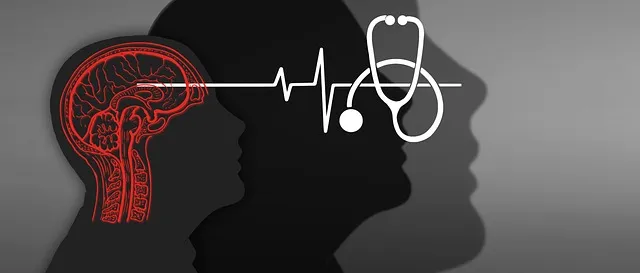Community outreach programs by Northglenn Kaiser Permanente behavioral health significantly enhance neighborhood well-being by overcoming healthcare access barriers, offering services in underserved areas, and introducing holistic practices like compassion cultivation and confidence boosting. Their comprehensive approach, including risk assessment and tailored programs for diverse populations, positions them as a key driver of healthy communities, addressing both individual mental health challenges and fostering collective positive change. Continuous evaluation and data-driven adjustments ensure the long-term success and sustainability of these initiatives, promoting resilience and overall community wellness.
Community outreach programs are vital in addressing mental health disparities, as exemplified by Northglenn Kaiser Permanente Behavioral Health Services. This article explores their role and impact, focusing on a successful initiative targeting mental well-being. We delve into effective strategies for community engagement, highlighting the importance of tailored approaches. Additionally, we discuss measuring success and ensuring long-term sustainability, using the Northglenn Kaiser Permanente behavioral health services as a case study to guide future programs with measurable outcomes.
- Understanding Community Outreach Programs: Their Role and Impact
- Northglenn Kaiser Permanente Behavioral Health Services: A Focus on Mental Well-being
- Implementing Effective Outreach Strategies: Engaging the Community
- Measuring Success and Long-term Sustainability of Outreach Programs
Understanding Community Outreach Programs: Their Role and Impact

Community outreach programs play a pivotal role in fostering strong, healthy neighborhoods. These initiatives aim to bridge the gap between healthcare services and communities that may face barriers to access, such as those served by Northglenn Kaiser Permanente behavioral health. By taking healthcare directly to these areas, programs can significantly impact mental well-being, reducing burnout among residents who might otherwise struggle to reach professional support.
Moreover, effective outreach goes beyond basic healthcare needs. It involves introducing and encouraging practices like compassion cultivation and confidence boosting, which are shown to enhance resilience and overall satisfaction. These initiatives not only improve individual lives but also contribute to the collective health of communities, creating a ripple effect of positive change.
Northglenn Kaiser Permanente Behavioral Health Services: A Focus on Mental Well-being

Northglenn Kaiser Permanente Behavioral Health Services stand as a beacon of hope and healing in the community, focusing intently on mental well-being. This initiative prioritizes accessible and comprehensive care, addressing a critical need in the region. By integrating various programs, such as Mindfulness Meditation sessions and Self-Care Routine Development workshops, they foster an environment that not only treats but also empowers individuals to take charge of their mental health.
Additionally, Northglenn Kaiser Permanente places significant emphasis on Risk Assessment for Mental Health Professionals, ensuring that practitioners are equipped with the latest tools to identify and mitigate risks within their practice settings. This holistic approach underscores their commitment to not just treating symptoms, but to understanding and addressing the underlying factors that contribute to mental health challenges in the community.
Implementing Effective Outreach Strategies: Engaging the Community

Implementing effective community outreach strategies is key to engaging and connecting with individuals who may be facing behavioral health challenges. Organizations like Northglenn Kaiser Permanente play a vital role in reaching out to communities, especially those with limited access to healthcare services. By adopting inclusive practices, such as offering Social Skills Training tailored to diverse populations, they bridge the gap between healthcare providers and community members.
This involves training healthcare professionals in Cultural Competency Training to ensure sensitivity towards different cultural backgrounds. Additionally, incorporating Compassion Cultivation Practices into outreach programs fosters understanding and empathy. These initiatives not only enhance patient care but also create a supportive environment where individuals feel more comfortable seeking behavioral health services, ultimately improving community well-being.
Measuring Success and Long-term Sustainability of Outreach Programs

Measuring the success and long-term sustainability of community outreach programs is paramount to understanding their true impact. Key performance indicators (KPIs) such as participant satisfaction, program attendance, and referral rates can provide valuable insights into the immediate effectiveness of initiatives like those offered by Northglenn Kaiser Permanente behavioral health services. However, for programs aiming to address complex issues like mood management or trauma support services, sustainability often lies in community integration and ongoing collaboration with local healthcare providers.
Regular evaluation and adjustment based on data-driven insights ensure that outreach efforts remain relevant and impactful over time. Incorporating Cultural Competency Training for healthcare providers involved in these programs can significantly enhance their effectiveness, fostering deeper connections within diverse communities. By continuously gauging success and adapting strategies, Northglenn Kaiser Permanente behavioral health initiatives can evolve to better serve the needs of the community, ultimately promoting long-term wellness and resilience.
Community outreach programs, as exemplified by Northglenn Kaiser Permanente’s Behavioral Health Services, play a pivotal role in enhancing mental well-being and accessibility to healthcare. By implementing effective strategies that engage the community, these initiatives not only address immediate needs but also foster long-term sustainability. Measuring success through various metrics ensures these programs remain impactful and relevant. The Northglenn Kaiser Permanente behavioral health services serve as a model for organizations aiming to improve community mental health, highlighting the importance of tailored, community-driven approaches in today’s healthcare landscape.






